|
Welcome Bernd! Thanks for taking some time to chat about writing. First, a few quick-fire questions: Skiing or surfing? Cats or dogs? And what is the farthest north you have ever traveled? Skiing, but preferably cross-country which can sometimes turn into downhill-skiing. Dogs! The North Cape in Norway. Flying over Iceland, Greenland, and further North doesn’t count. "Skiing, but preferably cross-country which can sometimes turn into downhill-skiing." Many of us (myself included) have longed to travel to distant places these past two years. You divide your time between Istanbul and Berlin, so can you give readers your top restaurant or cafe recommendation for both cities? For Istanbul it’s Çiya Sofrası, located in Kadıköy on the Asian or Anatolian side as Turks say. Two coffee places for Berlin, if you allow, very different in character: Café Savigny in Charlottenburg (rather cozy, some outside seating, with many newspapers) and Café Einstein in Tiergarten (old villa, Viennese style, very nice summer garden). Few writers struggle to start books and almost every one I know of struggles to finish them. As a prolific writer of non-fiction who has completed a number of books, what do you think the key to finishing a book is? Are there any habits, strategies, or frameworks that have helped you reach the end? Writer’s block is not really part of my experience. I never had to force myself and mostly had tight deadlines from my editors which helped. The expectation to see the book in print, my impatience, really helped. In retrospect, I wish I had taken more time with some of the books, just to enjoy the time spent with them more. I more or less see all of them as “research projects”, even though they didn’t result in academic books. Topics explored in your books include the cultural history of orchards, human fascination with birds, and even such concepts as night and winter. As many writers of fiction (I am thinking either historical or science fiction specifically) struggle to feel ‘qualified’ enough to write to this level of depth and accuracy, what advice do you have for writers who want to write like experts in a particular field? I hope I don’t come across with an expert’s attitude. I often see myself as mediating between experts and a readership that’s interested in a particular, popular topic. It’s really important to have a competent editor and one or two experts from the field who can check books for accuracy before they go into editing. For university presses this is common practice, as you may know. So I recommend that writers connect with a researcher in the field who may not have the time or inclination to write a popular, non-academic book him or herself and is happy to comment. "I often see myself as mediating between experts and a readership Extreme North, your most recent publication, has been described as a cultural “cabinet of wonders” as you explore the northern cultures that gave rise to both historic and popular myths about the north. What drew you to this topic and do you feel you achieved what you set out to accomplish? In part, it developed from my work and book on the experience of winter across the ages titled Winterlust. My travels in Scandinavia, the study of the Swedish language, an interest in history and in the making of myths or fictions also play a role here. Without having all these images and memories from my trips this book wouldn’t have been possible or turned out very differently. I wanted to pull different threads together, most importantly the connection between Romanticism, anti-semitism, and the fictions of white supremacy and ‘Nordic’ superiority. Extreme North is not a cultural history of the Northern cultures themselves, which would easily have filled a thousand pages, but the ways in which ideas about “the North” have been appropriated and instrumentalized for other purposes. And yes, I’m really quite satisfied with the result and the reactions to the book have been mostly positive so far, but I’m not saying that the story is ‘complete’ or couldn’t have been told in other ways. "Extreme North is not a cultural history of the Northern cultures themselves, which would easily have filled a thousand pages, but the ways in which ideas about “the North” have been appropriated and instrumentalized for other purposes." One of the central threads in the book is how these northern myths have been used to justify racist and eugenic ideologies that still pervade Western culture today. As a writer who draws great personal and creative inspiration from the myths, I find this both heart-breaking and critical to address every time this comes up in conversation. My question for you is this: what is your message for creatives who draw from this intriguing and often problematic body of myths? This is a very important question, but I’m not sure if I have a satisfying answer. I think it’s important to keep in mind that these myths have been passed on from generation to generation, sometimes across language barriers and certain religious filters. So I would not see them as absolute truths, there always remain some questions. I’m skeptical when someone tells me that this is how it “really” happened. There are some really interesting books that tackle history from a more scientific or anthropological point that may help to put things in perspective. Please let me recommend Neil Price’s Children of Ash and Elm. Everybody has to decide for himself or herself how far to go with using the stories and myths. I don’t feel like being in a position to tell people what they should do. At the risk of asking too grand a question, what would you say is the greatest gift that cultures of the north have to offer the rest of the world? If we refer to the indigenous cultures of the North, I find astonishing how well, over several thousand of years, they adapted to a really challenging environment and climate. If we talk about non-indigenous Scandinavian culture, I’m impressed by the high standards of education, health care and social welfare in general - the ‘Nordic’ model, even though I’m aware that there are some cracks in the system. There is also a sense of being in touch with nature and enjoying the outdoors as well as the comfy indoors that I see in many Scandinavians and that I find adorable - in particular, concepts such as friluftsliv and hygge. Not sure if it belongs here, but I’m a big fan of the Danish movie directors Susanne Bier and Thomas Vinterberg (and their films). And of actors such as Paprika Steen and Mads Mikkelsen! Last, but not least, where can readers find a copy of Extreme North? And where can they discover your other publications? My friend Brendan from New York told me that you can find it on the table with “notable nonfiction” at the fabulous Strand Bookstore. Or any other bookstore where you may have to order it. Also for the other books. Discover more from Bernd Brunner by visiting his website!
0 Comments
Welcome Ian! Thanks for taking some time to chat about writing. First, a few quick-fire questions: Spicy or sweet? Coffee or Tea? And if you could ride any mythical creature to work every day then which one would it be? Spicy! I’ve been pickling banana chilis all week and they are perfect on top of pretty much everything. I love coffee, I’ve been trying to get a bit more adventurous with my preparations but most of the time I just end up drinking it black. I’m quite forgetful so I have to be careful not to accidentally drink too much! If I could ride a mythical creature to work every day it would be a gryphon - no traffic in the sky! "If I could ride a mythical creature to work every day it would be a gryphon - no traffic in the sky!" Talk to us about your writing routine. Do you write in the morning or evening? Do you write little bits at a time or do you enter a trance-like state and write for hours on end? Do you schedule your writing or do you fit it around everything else you have going on in life? I try to treat it as professionally as possible, making sure I’m at my desk and working away during the day. I used to be much more sporadic with timings but now I’m a lot more focused! I tend to start with world-building, and spend a long time making maps and writing little summaries, what different places are like, how their cultures act and interact, what the history of the land is. From there I move to character, and once I have a good sketch of my main characters I just get going! I normally have a pretty detailed plot outline, but it always ends up being discarded or utterly changed as I think of better ideas whilst I’m writing! I tend to work in iterative drafts- my first draft is a skeleton, functional but lacking depth and very messy (tone, pacing, character, you name it…) - but I find having that messy structure in place allows me to go back and analyze and build from it. If I’m frustrated or can’t get a scene to work I go back to world-building, or work on a different scene or story - for me it’s important to keep momentum! Congratulations on your debut, The Gauntlet & the Fist Beneath, which launched in August 2021. What were a few highlights from the book launch? Any unexpected surprises? Any memorable moments? And last, but not least, any advice for other writers with upcoming debut launches? Thank you! It was a fantastic experience. I was able to spend a few weeks in the UK around the launch, and one of the highlights to me was travelling around different bookshops and being able to sign copies. It was such an amazing feeling to have copies of my book up there next to some of my SFF heroes, in stores where I’ve bought a lot of books! Places like Forbidden Planet, Brick Lane Books, Foyles, and Waterstones, were all really supportive and it meant I was able to meet some of the booksellers out in the wild. There were a few lovely surprises - The Broken Binding, a new online SFF speciality bookstore that launched in early 2021- they bought a huge pile of copies, and commissioned a special collectors version of the map at the front of the book. I was able to meet up with them and sign all their copies which was really fun. The other surprise was being chosen as the Goldsboro Books SFF book of the month for their SFF subscription - they produced a beautiful special edition with sprayed lightning bolt edges, which is absolutely gorgeous. That was a lovely moment for me to have someone objectively choose the book as something they wanted to share. In terms of advice for other authors around a debut launch, I’d paraphrase what my agent told me: you only get one debut launch, make sure you have a party to celebrate! "The other surprise was being chosen as the Goldsboro Books SFF book of the month for their SFF subscription - they produced a beautiful special edition with sprayed lightning bolt edges, The Gauntlet & the Fist Beneath is set in the Ferron Empire amid political, military, and environmental desolation. Captain Floré battles to ensure that a dying empire dies amid the horrors of the rotstorm. To do so, she must pursue searing celestial orbs which, as they fall, may portend the return of the slaving empire’s old strength. This is a rather grim and dire setting and I am curious to know whether you had a specific historical context in mind or if this was purely a fictional realm? What were some of your inspirations and where did you go when you felt stuck? There are inspirations from many places, but the world of Morost is an entirely fictional realm. My initial inspirations for the project came from some etchings of a mass sighting of ‘celestial phenomena’ in Nuremberg in 1551 - these fantastic woodcuts that show strange lights over a medieval European town. From there I spent a long time thinking about the world I wanted to build. There are elements inspired by the traditions and legends of Celtic animism- I found it intriguing to think of how a society in a similar clime to Britain might have developed into the middle ages without the spread of monotheism. Morost is a world where magic is a force to be reckoned with, and the gods are demonstrable as potent forces- I wanted to ask how that might influence a world, and a society. "My initial inspirations for the project came from some etchings of a mass sighting of Most of our story takes place in the Undal Protectorate, a state built from the ruins of a colonial outpost - what I liked and wanted to explore was the decision of the people not to go back to how things were before the Ferron empire came, back to their chieftains and clans and old societal structure, but actually the decision to build forward - to try and make something new, and better, for all. The actual physical world is heavily influenced by Scotland - I wanted to evoke that sense of existing at the end of the world, in a place wild and raw and beautiful. I took a lot of inspiration from the ruins of Scotland and England, and I wanted to bring forward that feeling of an old world, where there was always someone before, and the traces of those people are indelibly marked on the land. Beyond Undal, there is the rotstorm - an arcane storm that has raged for three centuries, beneath which lies the ruined empire of Ferron. Here, I took a lot of inspiration from science fiction and space exploration, the idea of this utterly inhospitable and alien place that doesn’t follow the rules we expect - but where nevertheless people must try to survive. This is perhaps the most fantastical region in the book - a nightmare of geography made real! Whenever I got stuck on the dynamics of the world I’d refer back to history books, to try and find how people act under different types of pressures. For inspiration I’d also refer a lot to concept art, ancient maps, diagrams of old forts, or a walk in the woods where I can soak in the atmosphere and feeling. "Whenever I got stuck on the dynamics of the world I’d refer back to history books, to try and find how people act under different types of pressures." As a bit of an aside, some might be interested to know that you have a PhD in clinical epigenetics. Many might think this suggests that you would be a Sci-Fi writer rather than an author of Fantasy. How do you think that science, specifically biological sciences such as genetics, can aid authors in creating fantastic worlds full of intriguing magic? I think one reason I chose to write this fantasy novel rather than a science fiction novel was partly due to the large focus I have on science! When I wrote Gauntlet I was working as a scientific editor, and so working on fantasy allowed me something of a release from those strictures. The magic system and mythology within Gauntlet is on the softer side of magic (more like Tolkien than Brandon Sanderson)- something inherently impossible to define, but perhaps possible to harness. I think my background in biology is helpful with regards to this as biology is so intricately amazing and complex and bizarre and to an extent unknowable: even as we understand more and more the constituent parts and patterns that create life, it remains a field where there is always mystery and discovery. My love of biology also stems from a deep love of the natural world, and I hope that my passion for nature is something that underpins the world-building for the series. This is a bit of a selfish question for me to ask as it’s specifically of interest to me, but how has your experience as a Scotsman living in Algiers been? I recently co-edited an anthology of historical fiction with Muhammad Augrangzeb Ahmad exploring the historical interactions between Vikings and Muslims; there are saga attestations of Viking journeys to Northern Africa as well as well-documented raids into Islamic Spain. I’m interested to know, do you draw on any Algerian history or on your experience of modern Algerian society for your writing? If not, what has been the best part of living in Algiers? That sounds fascinating, I’d love to read it! I moved out to Algiers a little over a year ago, after I’d completed The Gauntlet and the Fist Beneath - it has been a difficult year to try to get to know a new country with all of the restrictions on life that have come with COVID, but I’ve been able to travel a little within the country and dive into some of its incredible history. In terms of influence, it is interesting to me how much the themes of empire and colonialism I was working on with Gauntlet are so clearly mirrored here at varying stages in history - how that influences my portrayal of these power dynamics and their legacy in book 2 and book 3 of the series will hopefully incorporate some of what I’ve learned. It has been invaluable to be able to spend time living somewhere so culturally and geographically distinct from so much of my experience. As a Scottish person living in Algiers, I have struggled quite a lot with the heat though! And you can’t get hold of Irn-Bru for love nor money. "...it is interesting to me how much the themes of empire and colonialism I was working on with Gauntlet are so clearly mirrored here at varying stages in history- how that influences my portrayal of these power dynamics and their legacy in book 2 and book 3 of the series will hopefully incorporate some of what I’ve learned." Can you tell us about your next upcoming project? Is it the sequel? Another story altogether? And, if you’re able, can you give us a sneak peek or a little teaser? My current project is book two of the trilogy that began with The Gauntlet and the Fist Beneath! I can’t yet reveal the title, but I’m just polishing up the final text based on some editorial notes and then it should be moving into the world of production soon. After that I’ll be working on Book 3 to finish off this tale. For Book 2, Floré must race to cure her daughter Marta from the encroaching skein-sickness she has inherited, whilst trying to rally the Stormguard as the remnants of Ferron press into their lands. And in the shadows, older foes bide their time, ready to step into the light… It is even more action packed than the first book, and a chance to explore more of the world of Morost and spend more time with your favourite characters! "For Book 2, Floré must race to cure her daughter Marta from the encroaching skein-sickness she has inherited, whilst trying to rally the Stormguard as the remnants of Ferron press into their lands." Last, but not least, where can readers find your books and keep up with your future publications? You can find me on Twitter or on my website - that has all of my publications and contact information. Stop by and say hi! Keep an eye out for news about the sequels to Ian's debut, The Gauntlet & the Fist Beneath, on his website!
Welcome Cat! Thanks for taking some time to chat about writing. First, a few quick-fire questions: What is your writing beverage of choice? Which of the nine worlds of Norse mythology would you most like to visit for a holiday? And if you could cast anyone as Sigyn in a movie adaptation of The Goddess of Nothing at All then who would it be? Thank you for having me! I’m so thrilled! Writing Beverage: A giant glass of ice water. I’m working on being a hydrated human. Nine Worlds Holiday: Alfheim. I don’t need to be in the middle of any Aesir/Vanir/Jotun wars, so Alfheim seems like the most chill place to not get murdered. I also imagine it to be quite pretty. Casting Sigyn: I think I’ll go with Zendaya with Mary Jane from Spider-man vibes. Nerdy, confident, self-sufficient. However, if I wanted to stick to the themes of the book, I’d hire an up-and-coming queer woman looking for a breakout role, because that’s the perfect description of Sigyn in the first place; someone who knows what they want but is still waiting for their big break. "Casting Sigyn: I think I’ll go with Zendaya with Mary Jane from Spider-man vibes. We have a unique connection, though we both live on opposite sides of the globe: we are both Canadians! How has being Canadian influenced your journey as a writer and why do you think so many Canadians (you and I as prime examples!) are drawn to Scandinavian mythology? Being Canadian often comes with certain privileges that other countries don’t have immediate access to. Despite growing up in less than ideal circumstances, I had access to education and free time and libraries, and all of that plays into becoming an author. On the other hand, however, I always felt a personal lack of culture and tradition growing up. Perhaps that’s simply an issue of the grass always being greener somewhere else, or because growing up in a small backwater town didn’t provide for a lot of cultural experiences. I was always looking for something to fill that void, and often found it through story. "On the other hand, however, I always felt a personal lack of culture and tradition growing up... As for why Canadians are drawn to Scandinavian mythology, I’ve personally found a sense of ‘home’ in the tone and setting. Scandinavian people worked hard on land and sea, suffered through harsh winters, and also had bears coming up on their back porch to see what’s for dinner. I’m half Newfoundlander, half Nova Scotian, and in my rural experience, we’re generally a humble, blue-collar people with a history of hard work and sailing and making the best of things. Even the landscape of Newfoundland is full of fjords and puffins. Greek, Roman, and Egyptian mythology take place in these bright, warm worlds that seem so foreign to me. But dark humour, harsh snowstorms, adversity? That was something I understood. "Greek, Roman, and Egyptian mythology take place in these bright, warm worlds that seem so foreign to me. But dark humour, harsh snowstorms, adversity? That was something I understood." The Goddess of Nothing at All explores the Norse cosmos through the eyes of Sigyn, known mostly as Loki’s faithful wife. I’ve recently enjoyed other ‘Alternative Perspective’ stories about the Norse myths, including Joanne Harris’ The Gospel of Loki, Geneveive Gornichec’s The Witch’s Heart, and Bjorn Larssen’s Children, so this seems very timely! What drew you to the character of Sigyn and what do you hope readers walk away with after reading this story? It would be romantic to say that I was initially drawn to Sigyn, but I wasn’t. How can you be drawn to someone whose One Job is to hold a bowl really good? But after Neil Gaiman’s rendition was released, I realized there were too many gaps in the story. So I read the Eddas, sure that I’d find answers there. Spoiler alert—I did not. The things that I wanted to know were just gone. Erased. So I started writing my own answers. I was drawn into the questions of cause and effect. Why doesn’t Odin make more logical choices? Why does Loki escalate from this troublemaker to a world-ender? What wouldn’t I do if people sewed my lips shut, tortured me, and took my children away? And finally, what kind of person stands by the man who ends the realms? Who is she? How strong must she have been to have endured all of the things that came before that cave? I had to know who she was. As far as what I’d like people to walk away with, the book is different things to different people. What I do hear over and over from women and non-binary readers is that they’ve lived part of Sigyn’s life. They know what it feels like to be overlooked and underestimated. They’re familiar with expecting nothing. And some of them have loved someone who is… self-destructive in nature. Mostly, I hope that people can have fun with the book, but I hope that it lets some readers feel seen. It was a work of catharsis for me, and maybe it can be that for someone else. The Norse myths are particularly notorious for being hard to adapt; with multiple, conflicting historical sources (few, if any, of which are complete), I’ve found that I do have to take some ‘artistic license’ at times. Were there any gaps in Sigyn’s story that you felt you had to fill in yourself? What was that process like and how did you make those decisions? *Unhinged laughter* Sigyn’s story is 97% gaps. It was both a wonderfully blank slate and a daunting challenge. To get started, I used her surroundings as a template. She has a reputation in some heathen circles as either the abused spouse or child bride, and I knew I didn’t want that. Loki is canonically cunning and handsome. It stands to reason he could find a wife he likes and respects without it having to be heinous, especially if we don’t relegate him to the role of Norse Lucifer. So what kind of woman would Loki respect? Probably someone smart, self-sufficient, bold, and driven. And if we look at so many godly duos across pantheons, we see things like Love marrying War, Earth and Sky, Yin and Yang. So if Loki is wild, unpredictable, and chaotic, Sigyn should be grounded, reliable, and loyal. "And if we look at so many godly duos across pantheons, we see things like Love marrying War, Earth and Sky, Yin and Yang. So if Loki is wild, unpredictable, and chaotic, Sigyn should be grounded, reliable, and loyal." After that, my priorities were to give her active roles in any myth she appeared in, to make sure she had agency even in places where the myths weren’t about her, and to ground every character’s choices in a logic and sense of morality that was true to their character. Those concepts guided all of my narrative choices as to what happened with each myth and how the book progresses from Sigyn meeting Loki in chapter two to the end of the realms. I often reflect on why we, in a modern day society, reach back to mythic narratives such as the Norse myths. What do you think the myths have to offer citizens of a digital, globally connected world which is steeped in science and rationalism? Myth is one of the doorways into something we used to have and no longer do. It speaks of a perceived “simpler time” with different expectations and a sense of magic still left in the world. If you visit the right places on the internet, there’s a resurgence of people yearning for this. Cottagecore, YouTube channels about moving to the woods, an explosion of the tiny house market. You can also see this in the popularization of spiritual practices like witchcraft, heathenry, paganism, etc. Of course, anyone who’s studied ancient Scandinavia, Rome, or Egypt knows that life wasn’t actually simple; imagine telling all of North America that they had to make their own bread every day! And as much as I believe in science and rationalism, they’ve pushed us further from a more natural life that values slowing down. They’ve stolen the idea of magic, something that humanity has always believed in. These myths let us peek back at the past, to witness magic, and believe in something immeasurable, whether that’s abstractly or in the form of a spiritual practice. One of the reasons I think that alternative viewpoint narratives have become so popular, at least here in Canada, is that we ourselves are re-examing and re-evaluating our own colonial history; the ‘good guys’ according to history textbooks don’t seem so good after a closer inspection. Are you hoping to stimulate social or political conversation about our own views of history or are you aiming to simply write a memorable story that engages readers? The examination of colonialism is long overdue. Very little of my book relates directly to that because the world doesn’t need another white Canadian opinion about what we did, but it’s also hard to write about queer Norse gods without reaching into the elimination of queer history. A lot of the world’s history has been examined by cisgender, white, straight, Christian men. Because of the rigidity of the last several hundred years in the west, we’ve seen archaeologists pick up an urn with two female lovers on it and declare them the very best roommates. (If you’re looking for a great beginner’s resource on this idea, the book Ancient Bodies, Ancient Lives: Sex, Gender, and Archaeology by Rosemary A. Joyce is a fantastic place to start.) And before archaeologists, armies were destroying cultures and stripping down religions, often putting an end to generations of happy queer existence. For example, before the land that became Canada was colonized, Indigenous peoples celebrated the Two-Spirit identity. Then Christianity arrived with its rigid ideas of marriage and a penchant for destruction. So we know that queer people have always existed, and were sometimes worshiped, so how did we get from worship to outlaw? "The examination of colonialism is long overdue. Very little of my book relates directly to that because the world doesn’t need another white Canadian opinion about what we did, but it’s also hard to write about queer Norse gods without reaching into the elimination of queer history." Like most things Viking, Christianity showed up and lots of knowledge was lost, so we don’t have a clear picture of queer life. It certainly wasn’t a utopia since (to oversimplify) it was considered an insult to be called “a bottom.” There are many things in the Eddas that could easily be read as queer and many people in the last years have taken up this angle of research. But there are also plenty of people who want to use Viking age culture at the forefront of their supremacist ideology. So when I began writing this book, it was very important to me that the cast of gods were primarily gods who have been overlooked or who were (canonically or not) outcasts, unknown, or marginalized. We may not ever perfectly know what a queer life from that time looked like, but in this respect and many others, I’d love for my readers to be questioning what we know, who told us, and how the past has been coloured by the victors. Can you give us a sneak peek at what your next project will be? Can we expect a sequel or are you exploring something new? I’ve got two projects lined up. First is Book 2, which is going to deal with the aftermath of The Goddess of Nothing at All and will be themed around grief and healing. After that, I’ll be jumping back into a queer witch story that’s highly inspired by puritan witch hunts, the agency of women, and indoctrination. Last, but not least, where can readers find your work and keep up to date on your latest publications? The Goddess of Nothing at All can be found via most major retailers, should be available to request at your local bookstore, and you can even ask your library to order a copy! Try this link to find out where it’s available in your region. The best places to keep up with me are on Twitter, Instagram, or Tiktok, and if you’re a real go-getter, you can sign up for my newsletter via my website! If you preorder, don’t forget to grab your preorder perks here! Sign up for Cat's newsletter via her website to keep up to date on all her latest projects!
|
AuthorJoshua Gillingham is an author, editor, and game designer from Vancouver Island, Canada. Archives
April 2022
Categories
All
|

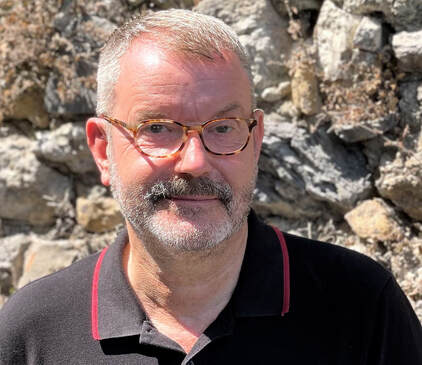
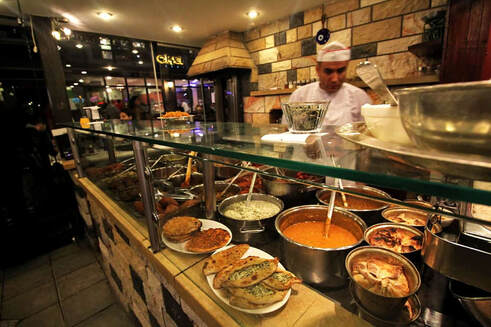
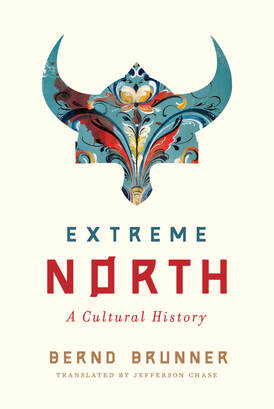
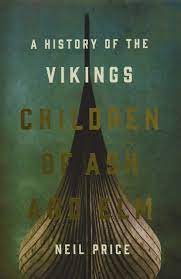
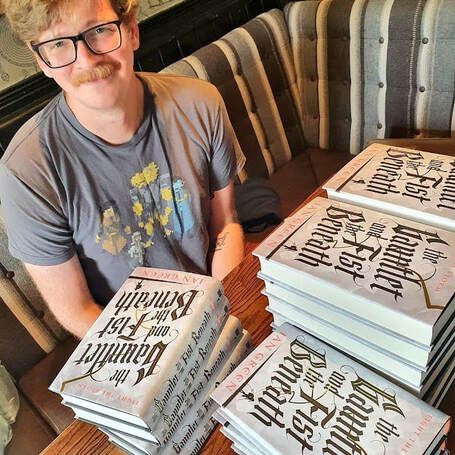
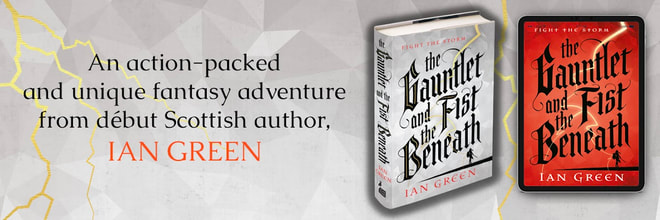
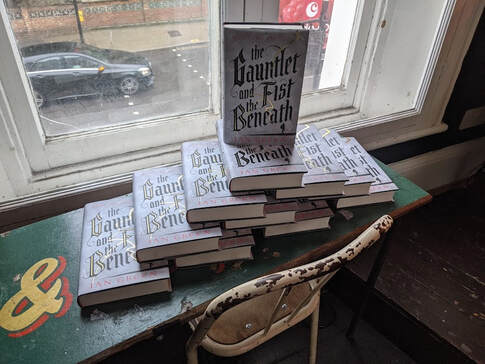
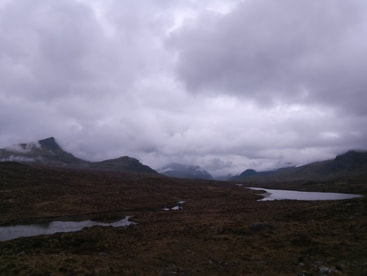
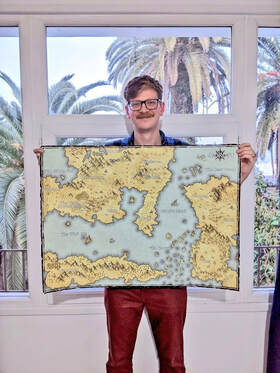
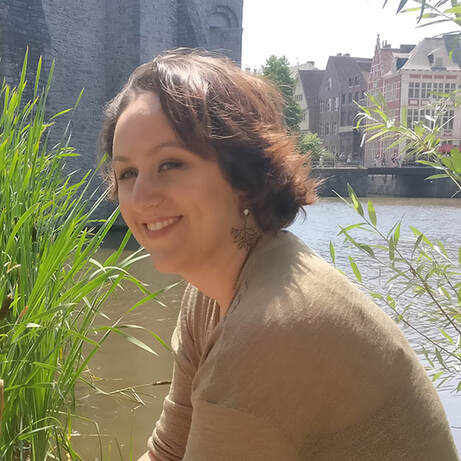
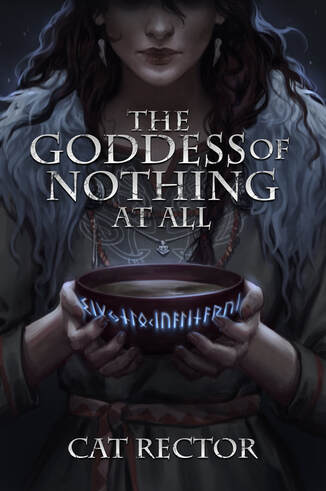
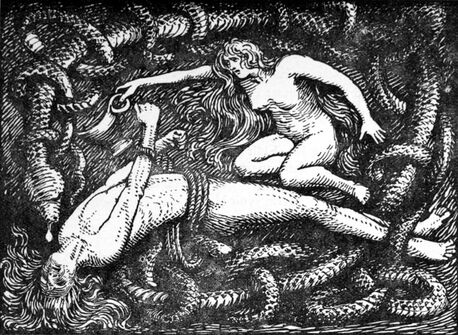
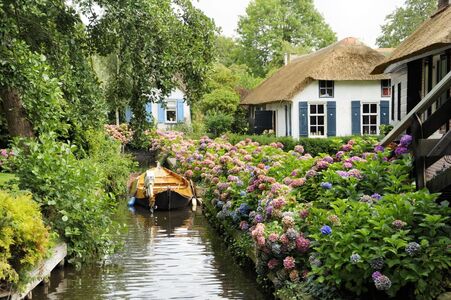
 RSS Feed
RSS Feed
